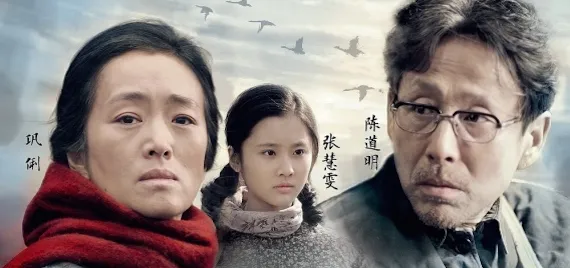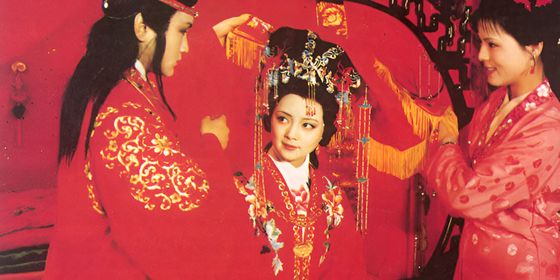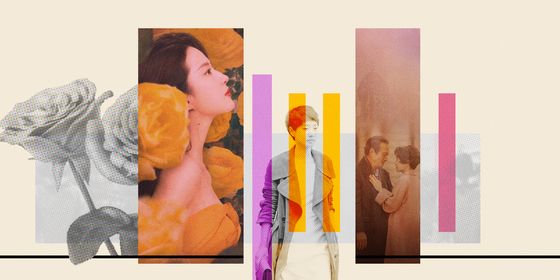An introduction to Zhang Yimou’s newest film
Zhang Yimou’s transformation from malcontent dissident to national hero over the years has served as a prototype and mirror for the incorporation and cooptation of China’s fringe artists into the mainstream spotlight. Zhang’s early films To Live (《活着》) and Raise the Red Lantern (《大红灯笼高高挂》) galvanized the West and drew the ire of the Chinese government through its heartbreaking stories of life in the Cultural Revolution. Recently, though, Zhang has come under fire from both Chinese and Western critics for a slew of projects and films that seem to serve as a mouthpiece for the mainstream. Simultaneously a national hero and an artist with very strong beliefs, Zhang (as well as the current generation of incoming Chinese artists) have had to strike a balance not just between mainstream versus personal aesthetics, but of personal versus public political considerations as well. In this vein, Coming Home, Zhang’s latest tear-inducing melodrama about lives broken by the political turmoil of the Cultural Revolution stands squarely atop this thin line.
Based on the book The Criminal Lu Yanshi (《陆犯焉识》), the film is a tale about the struggles of a family to survive in the chaos of the Cultural Revolution. Chen Daoming plays the titular character, a college professor and political rightist imprisoned during the anti-rightist campaigns that lasted from 1957 to 1959, and Gong Li plays his wife.
While much of the movie takes place after the Cultural Revolution, the elements of drama are sown in as precursors to the struggles of the protagonists during this period of chaos. The movie opens as Chen escapes from prison; yet it’s his daughter Dandan, a young ballerina who pines for the role of lead dancer, who voluntarily turns him in upon his arrival.
Workers’ Propaganda Team director: Have you been in touch lately?
你们最近跟他有联系吗?
Feng Wanyu: No. We have heard nothing about him for over 10 years.
没有,十几年没他的消息了。
Director: Good. I have asked you to come here today specifically to tell you two things: one is that once you find the fugitive’s whereabouts, report to us immediately and cooperate with our investigation and capture; the second thing is that meeting the fugitive is not allowed. You should know your stance and keep your distance from him. Have I made myself clear? Give me your word.
好。我今天把你们家属叫过来,就是通知你们:一,发现逃犯的行踪立即报告,配合组
织调查抓捕;二,严禁与逃犯见面,站稳立场,划清界限。听清了吗?表个态吧。
Dandan: He has nothing to do with me. I’ll follow the Party’s decisions.
他跟我没关系,我服从组织决定。
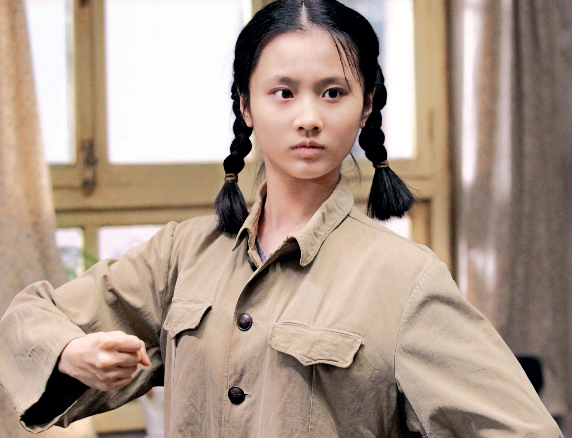
Dandan, played by Zhang Huiwen, practicing for a reenactment of the famous ballet, ” The Red Detachment of Women”We then find ourselves at the end of the Cultural Revolution, as Lu is released from prison. Returning home, he finds that his wife has suffered greatly due to personal and familial tragedies that have caused her irreparable psychological damage.
Feng: I may have seen him somewhere. Who is this guy?
我好像在哪儿见过他。他是谁啊?
Dandan: Lu Yanshi, of course.
陆焉识啊。
Feng: You are talking nonsense. Dandan, stop bringing strangers to my apartment from now on. Do you hear me? And give me that photo. You will cut your father out if you keep it.
你胡说什么陆焉识。丹丹,你以 后不要带这种陌生人到我这儿 来。你听见没有?照片不能放你这儿。放你这儿你又把你爸剪了。
She no longer remembers who he is. Lu attempts to re-establish his relationship with her as a loving husband, and they slowly begin to dust off and recover their family. It’s a literal story of amnesia that mirrors the amnesia that surrounds the Cultural Revolution.
While that message has, perhaps, been emphasized to an excessive degree in modern China, Zhang does it tastefully and is careful to walk around the perceived excesses of youth culture in today’s society. Instead of issuing the same condemning decree about material wealth that is directed at so many young Chinese men and women, Coming Home seems to say that the things that matter, we’ve always had.
In this way, Coming Home is really a love story. “Nobody can get away from whatever you inherit from your own history, from your parents and grandparents. So how do you treat history? How can you, the nation, the people, how can you survive history?” The answer is “family love”, Zhang Zhao, the movie’s producer, said in a recent New York Times interview.
Dandan: Dad, why aren’t you reading the letters? She has been looking for you.
爸,你怎么不念信了?我妈到处找你呢。
Lu: You have no idea w hat’s going on. When I read the letters to your mother, her eyes are fixed on my face. If I continue, she’ll think I’m someone I’m not.
你是不知道,我给你妈念信的时候,她的眼睛死死盯着我这张脸。如果我再这么念下去在 她的眼里,我真成了那个念信的了。
Dandan: Dad, aren’t you doing this just to be near her and take care of her? What else matters?
爸,你想这么多办法,不就为了能接近她,照顾她吗?其他的还重要吗?
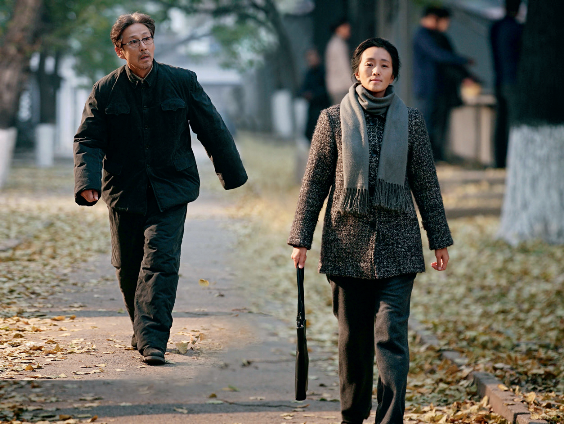
Feng Wanyu, played by Gong Li, disregards her husband Lu Yanshi, played by ChenDaoming—a man she no longer remembersNot everyone’s enamored by Coming Home, though; some critics have panned it as repetitively motivic, especially regarding the themes of amnesia and recognition, while others have considered it too “simple” to be considered a serious film. While in the premise the story sounds something out of a soap opera, it’s easy to get carried away by the delicacy with which Zhang, the director, handles the affair and the emotions surrounding an aging couple struggling to stay together, backlit by the fires of political strife. His veteran hands craft and cradle the story with a kind of care rarely found in mainstream Chinese film.
Is Coming Home too simple to be considered a relevant political commentary about the Cultural Revolution? Is this a sentimental mainstream film, or a delicately handled cultural masterpiece? Just as we saw in Black Coal, Thin Ice (the closest thing we’ve ever seen to blockbuster art cinema)– why can’t it be both? For one, it’s aimed at an aging generation who never had a chance to unpack the trials and tribulations of political turmoil. While Coming Home may treat the Cultural Revolution as an afterthought, it’s certainly one with a strong aftertaste.
CHEN DAOMING (陈道明): Chen Daoming is a Chinese actor who graduated from the Central Academy of Drama. Chen is best known in the international film community for his portrayal of the Qin Emperor in Zhang Yimou’s 2002 film Hero (《英雄》). He is known for having a diverse acting palate, and his projects have spanned many genres including comedy, romance, action, drama, and others.
GONG LI (巩俐): Gong Li is a Chinese actress who first came to prominence during her work with director Zhang Yimou and is credited with helping to bring Chinese cinema to the West. She has twice been awarded the Golden Rooster and the Hundred Flowers Awards as well as the Berlinale Camera, Cannes Festival Trophy, National Board of Review, New York Film Critics Circle Award, and Volpi Cup. She studied at the Central Academy of Drama where she met Zhang and was chosen to star in his first film Red Sorghum (《红高粱》). Since then she has starred in many of Zhang’s movies, including To Live, Raise the Red Lantern and Curse of the Golden Flower (《满城尽带黄金甲》), and has even participated in a host of Hollywood films.





![truecrime-podcast-covewr]](https://cdn.theworldofchinese.com/media/images/truecrime-podcast-covewr.format-jpeg.width-325.jpg)
